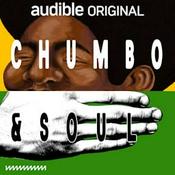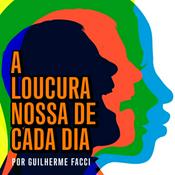143 episódios
- My guests Mikey Downs, Nance and Grady Page are all accelerationists. We discuss the curious return of accelerationism in today's political moment and what it signals. We debate the politics in the philosophy of Nick Land and Curtis Yarvin. My guests find Land's thought to be generative and important, and they insist that Land is not a fascist thinker. We debate that precise point and dive into the core of what my guests find so incisive in the wider accelerationist movement.
--
If you benefit from my work please consider a donation: paypal.me/danieltutt1
You can also become a Patron to gain early access to all of my interviews and videos: www.patreon.com/emancipations - With guest co-host Benji Schoendorff, I sit down with Dr. Ali Kadri, a leading Marxist political economist and scholar of the Arab world to discuss his important new book The Accumulation of Waste: A Political Economy of Systemic Destruction (2023). In this interview we discuss Kadri's critique of Western Marxism, the question of revolutionary consciousness today, class issues, imperialism and its status and dynamics, the role of the anti-imperialist struggle and Dr. Kadri discusses his influences in contemporary Marxism.
In his book The Accumulation of Waste, Kadri traces how capitalism, especially in the Global South, increasingly accumulates waste not only in discarded commodities, but in wasted lives, labor, and entire nations rendered disposable by imperial extraction. Through his incisive critique of “Western Marxism” and its retreat from anti-imperialist struggle, Kadri argues that Marxism today must re-anchor itself in the lived realities of colonial domination, military intervention, and financial subjugation.
This conversation explores why imperialism remains central to capitalist reproduction and why any Marxism that cannot think anti-imperialism is destined to fail politically and theoretically. Co-host Benji Schoendorff is a clinical psychologist and podcast host of "Resistance is Fertile" (https://bit.ly/3KIRiGH). - Grady Page joins me for a philosophy salon on how accelerationist ideas influence contemporary struggles over technology, capitalism & the left. Read this Substack about the event: https://revolpress.substack.com/cp/180530252
If you benefit from my work please consider a donation: paypal.me/danieltutt1 You can also become a Patron to gain early access to all of my interviews and videos: www.patreon.com/emancipations Socialism Against Liberalism: The Political Philosophy of Jean-Claude Michéa (feat. Tony of 1Dime)
24/12/2025 | 1h 22minI'm joined by Tony Chamas, aka "Tony of @1Dimee" for a discussion on the philosopher Jean-Claude Michéa's theory of liberalism. Liberalism requires a unity between its economic and its cultural imperatives in order to remain intact as a ruling political ideology. What role does the left play in keeping this unity intact? We will argue that when the left becomes the stewards of cultural liberalism they participate in the pacification of class struggle politics and this prevents the left from remaining true to a socialist vision of politics. We discuss and debate how to best address this fundamental double bind, how it might be overcome and what the prospects are for socialist politics once this hostage situation is undone.
Tony Chamas is a political theorist and author of the forthcoming book "Freedom to Change Nothing: The Spectrum of Managed Democracy and What Makes the US Different." Chamas is also a video essayist known for his YouTube channel, 1Dime and his podcast, 1Dime Radio. His most notable videos include "The Deficit Myth" and "China's Cultural Revolution: The Full Story" (Documentary).The Concept of Extimacy in the Work of Jacques Lacan (feat. Nadia Bou Ali & Surti Singh)
17/12/2025 | 1h 22minI am joined by Lacanian philosophers Nadia Bou Ali and Surti Singh to discuss the concept of "Extimacy" in the work of Jacques Lacan. In 1960, Lacan coined the neologism extimité (extimacy) to denote a structure of subjectivity in which the most intimate, internal core is already external, thus complicating the traditional philosophical dualisms and binaries that have informed traditional notions of subjectivity. We discuss what this idea helps us to think in terms of philosophy, culture and politics. This conversation is based on a new collection of essays co-edited by Nadia and Surti entitled Extimacy, a book that is the first sustained interrogation of the concept.
Nadia Bou Ali is an associate professor and director of the Critical Humanities Program for the Liberal Arts at the American University of Beirut. She is the coeditor of Lacan contra Foucault: Subjectivity, Sex, and Politics and the author of Hall of Mirrors: Psychoanalysis and the Love of Arabic. Bou Ali is a candidate analyst at the Lacanian School of Psychoanalysis in the Bay Area.
Surti Singh is an associate professor of philosophy at Villanova University.
Mais podcasts de Sociedade e cultura
Podcasts em tendência em Sociedade e cultura
Sobre Emancipations Podcast
Emancipations explores the intersection of Marxism, politics and philosophy. Hosted by Daniel Tutt. Join our study groups and support us at https://www.patreon.com/c/emancipations
Site de podcastOuça Emancipations Podcast, É nóia minha? e muitos outros podcasts de todo o mundo com o aplicativo o radio.net

Obtenha o aplicativo gratuito radio.net
- Guardar rádios e podcasts favoritos
- Transmissão via Wi-Fi ou Bluetooth
- Carplay & Android Audo compatìvel
- E ainda mais funções
Obtenha o aplicativo gratuito radio.net
- Guardar rádios e podcasts favoritos
- Transmissão via Wi-Fi ou Bluetooth
- Carplay & Android Audo compatìvel
- E ainda mais funções


Emancipations Podcast
Leia o código,
baixe o aplicativo,
ouça.
baixe o aplicativo,
ouça.








































